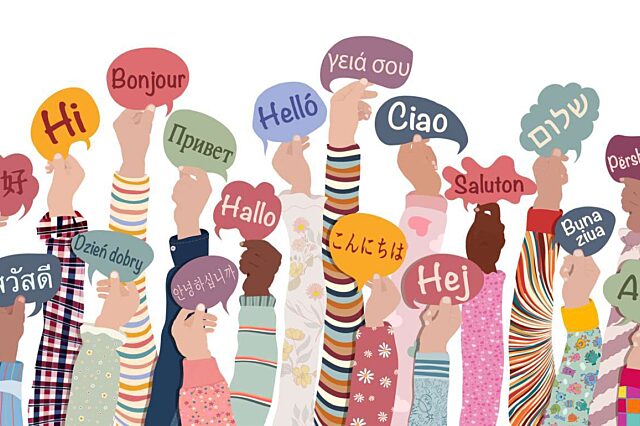Overcoming Language Barriers in Health Care
Access to quality health care is vital. This ensures people have the opportunity to a better quality of life and improved physical and mental health.

Access to quality health care is vital. This ensures people have the opportunity to a better quality of life and improved physical and mental health. While access may be available, sometimes people are faced with barriers that make it more difficult to receive services.
One of the top five barriers in United States health care is language. When a patient’s native language isn’t English, getting the proper service and treatment can become difficult. During Hispanic Heritage month, it is important to highlight how UF Health Jacksonville takes steps to ensure we help current and future patients overcome this barrier and access the health care services they need.
Language Translation Services
UF Health Jacksonville offers several language translation services and a number of ways for patients to access them.
For in-person services, patients can work with one of our staff interpreters. We currently have three certified staff interpreters who speak Spanish along with a host of other employees who are bi-lingual and qualified interpreters. For all other languages, we use two local vendors who provide access to over 80 different languages.
Cyracom and Language Line Solutions are also tools used to help provide video and audio remote interpreting. Similar to a FaceTime call, patients are able to call in via video and see their translator or have just the audio only. While on the phone with the interpreter, they are able to set up appointments and ensure they get the services they need.
Patients typically request language services when they are calling ahead for an appointment and will make note that they need interpretive services. During the scheduling of the appointment, accommodations can be made to ensure the person gets the proper service and care.
There are other methods staff can use to help patients who are experiencing language barriers. In the Emergency department, staff use what is called Limited English Proficiency (LEP). This is signified by placing an orange wrist band on a patient who has limited English skills. This lets staff in the ED know this patient will need interpretive services and to provide the tools needed to properly communicate.
Employees in the ED can also place a globe sticker on the patient’s door. This is a signal to staff to have interpretive devices ready for the patient. Staff can also dial 52000 if an interpreter is needed at an appointment or find additional information on the employee Bridge website about how to request an interpreter and documents for translation, particularly when discharging a patient who doesn’t speak English.
“These services help ensure patients understand what’s going on with their health care,” said Monique Curtis, patient services manager for UF Health Jacksonville. “This will help them make informed decisions about their health and give them a voice.”
Curtis explained the goal of all the services is to ensure that patients have better access to health care. She stressed the importance of going the extra mile to make sure patients understand the health care information they are receiving and that employees are using the tools available to communicate around the language barrier.
Employee Advocates
UF Health Jacksonville employs physicians, faculty and staff from various backgrounds. Having employees from different cultures who are bi-lingual can often be a saving grace when treating patients faced with a language barrier.
Gladys Bruno, a certified diabetes education specialist, speaks Spanish and understands the importance of being a bi-lingual resource to patients. She makes sure that she offers materials in various languages when possible, especially for community outreach events.
“Language is an essential part of education,” she said. “When you receive information that’s not in your native language it makes things hard to understand.”
Because of this, patients can potentially miss out on resources that are available to them. When people can receive the information in their language, they are better informed to seek help about their health.
Kathy Hudson, a registered nurse in the pediatric emergency room, also understands the importance of employees being better advocates for patients. She has been with UF Health Jacksonville for six years and is a fluent Spanish speaker. Developing trust with patients is important in improving overall health outcomes.
“Being able to speak Spanish has helped me and my colleagues provide timely care for patients,” Hudson said. “This has helped me become a more powerful patient advocate. I have a huge sense of social responsibility to our patient community in Jacksonville, being able to assist the Spanish speaking community expands my ability to advocate for them.”
Although Hispanic Heritage month is coming to an end, it’s important that we support patients in overcoming language barriers throughout the year. Whether it’s Spanish or another language, our goal at UF Health Jacksonville remains to be an advocate for the patient and help them gain access to the health care services they need for a better quality of life.
For more information on Patient Relations interpretive services visit: Patient Relations – Patients & Visitors – UF Health Jacksonville (ufhealthjax.org)
About the author
